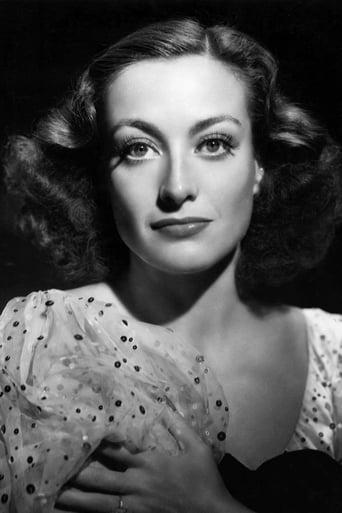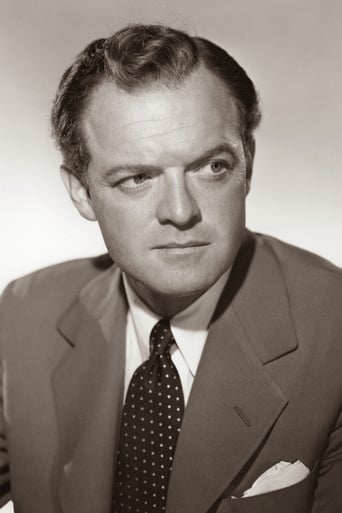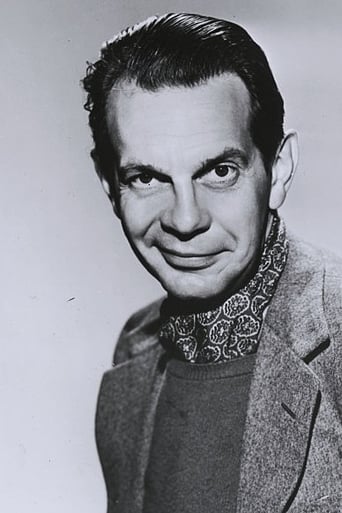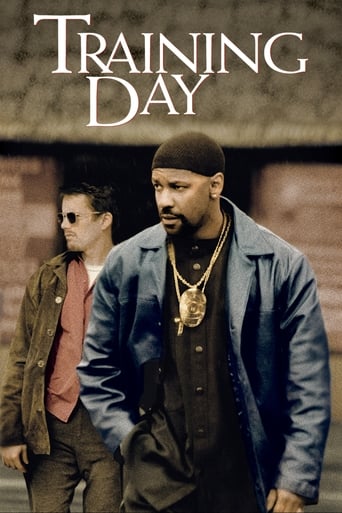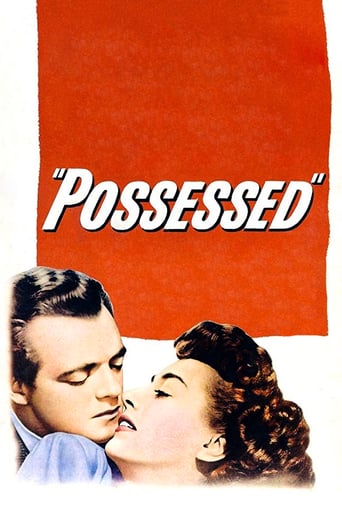
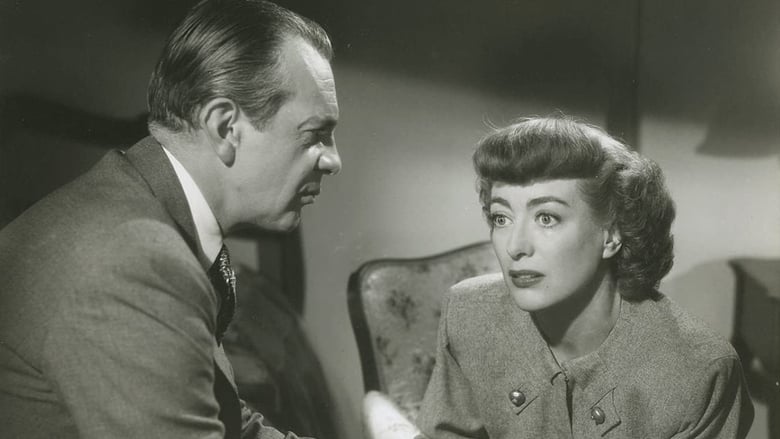
Possessed (1947)
After being found wandering the streets of Los Angeles, a severely catatonic woman tells a doctor the complex story of how she wound up there.
Watch Trailer
Cast
Similar titles
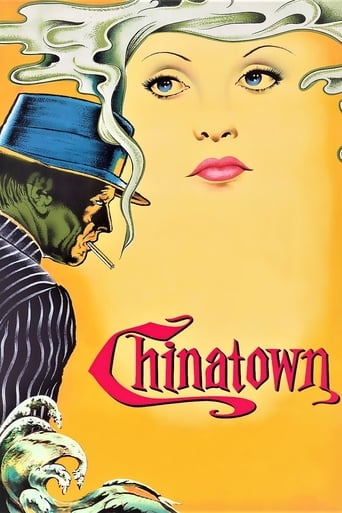


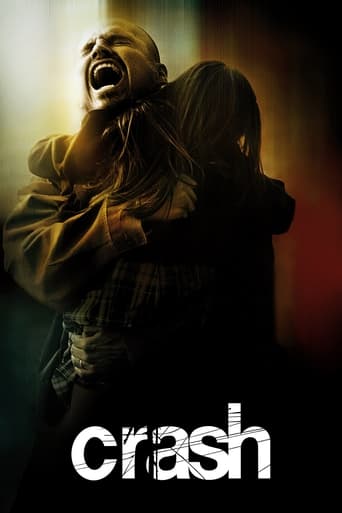

Reviews
Sorry, this movie sucks
hyped garbage
It's fun, it's light, [but] it has a hard time when its tries to get heavy.
It’s not bad or unwatchable but despite the amplitude of the spectacle, the end result is underwhelming.
There is some very good stuff in this film but it's way too long and repetitious. It overreaches, trying to be all things to all people -- a love story, a mental-illness screed, and a noir thriller. Joan Crawford is an interesting star. She isn't beautiful or even pretty and sometimes that works in a film because she is indeed a good actress. However, in this she gets too much screen time and bogs the movie down. However, Crawford's Louise is excellent in her scenes with David Sutton (Van Hefflin). Is there any woman who hasn't swooned over a guy who doesn't give a fig? ("'I love you' is such an inadequate way to say 'I love you!'") She nails this type of heart-rending predicament. The film is also good at sketching the perils of wishing away mental illness. Not only is Louise obsessive and self-loathing but she suffers from ideas of reference and often teeters toward psychosis, yet the film would have us believe that all she needs to heal is the love of a good man. Until "Possessed" turns into a shoot-em-up, that is. Hefflin is usually a rather understated presence in a film, but he's great in this. He's believable as a cad who hangs with Louise because he doesn't have anything better to do -- spot-on as the type of heel who will just get up and leave when the spirit moves him. "In love there are no relapses," he opines to a horrified Louise. "Once you're out of it, the feeling never comes back again." (Oh, I see. So THAT'S how it works.) And Hefflin's no less convincing as a lady-killer canoodling with a love-struck ingénue (played well by the winsome Geraldine Brooks). A bravura performance! However, Raymond Massey, so compelling in some other films, is wasted here as the polite-to-a-fault widower Dean Graham, who sees himself as old -- "It isn't very easy for a man my age to kiss a woman with dignity." Yet Massey was only 51 when this was made! (I can hear his joints creaking now.) The film drags through some extended sequences with psychiatrists and Louise feeling spooked by Graham's dead wife. And I found the ending too neat. (Why do we have to tie the story up with a neat little bow?) In the introduction to "Possessed" on TCM, Josh Mankiewicz notes that its director had an affair with Crawford during filming. Maybe that explains some of the bloating here. Which is a shame because there's a lot that's pretty good!
If Glenn Close's Alex Forrest had gotten the Joan Crawford treatment in the 1987 thriller "Fatal Attraction", we'd get more of an examination into her mind rather than the Alfred Hitchcock "Psycho" finale we were stuck with. You don't get any closer than Close with Joan Crawford as the ultimate psychopath, a woman of multiple emotional problems that make her a sad case to behold.This was the second film called "Possessed" that Crawford made, and in each case, the word "possessed" had a different meaning. The 1931 film, her first chance to utilize her famous 1930's MGM glamor after several years as a jazz baby, had her being possessed by a man (Clark Gable), but here, "possessed" indicates the demons inserted into her mind which have made her the picture postcard for "Diary of a Mad White Woman". She's also a nurse, so there will be comparisons to Kathy Bates' character in "Misery" as well. She takes care of the equally mad heard but not seen wife of Raymond Massey, a doctor himself involved in his own hell. When she allegedly commits suicide, Crawford remains on, taking care of Massey's young son and fighting with his older daughter (Geraldine Brooks) whom Crawford eventually becomes convinced is taking away the love of her old flame, Van Heflin, who gave her the heeve-ho months before. Like any mental illness, it subsides for a while, and Crawford settles into a seemingly happy marriage with Massey, but then Heflin returns, and all of the demons start up all over again.Yes, Crawford does go over the top in this one, but here, it is part of the character, having fits that seem to make no sense-at first. As you see what this woman is going through in a story told through flashback, you empathize with her. Crawford is first seen wearing no makeup roaming the streets of L.A. (in heels of course) and ends up in the hospital where her back story unfolds. Van Heflin is supposed to be the one to blame for her going "Berserk" but it really goes beyond that. He is not a villain, only a bit of a scoundrel, and he does let her down gently. Raymond Massey provides much tenderness as the man she admits she doesn't love when she agrees to marry him which shows his versatility considering all of the villains he's played. Geraldine Brooks allows us to see the kindness in her initially resentful daughter, only resorting to distrust of Crawford when it is pushed to that. This is without a doubt Crawford's finest performance (closedly followed by "Humoresque"), more layered than her Oscar Winning role in "Mildred Pierce" and by allowing herself to show us what she looks like underneath all that pancake, Crawford proved she was an actress first and a star (a very close) second.
Note: I'm giving this a high mark in spite of hiccups along the way, because the gist of what's going on here I feel is too good to pass. You should know that the outer layers of the story are handled in a clumsy manner. You will have to peel all of that. So forget that doctors appear every and now then in the film to give textbook diagnosis of mental illness, for a lot of people at the time psychoanalysis was a wholly new fad to go with peacetime. Forget that several twists seem a little far-fetched, there is a reason. Forget that the woman is a clinical case (a more subtle insight is that clinical cases suffer from a more acute form of the same delusions as everyone else). So we start with a woman gone mad. The startling intro, one of those moment of noir genius, is the distraught woman staggering in a daze across empty streets looking for a man called David. It starts at dawn, so we presume after a long hard night's journey. The bulk of the film unfolds as hazy recollections of this woman from a hospital bed. Your first clue on what this is all about is that the powerful medicine that brings her out of catatonic stupor is only sterile water, the mind convinced of a cure.Inside the nested fiction she describes, she's a nurse looking after the bed-ridden wife of an industrialist. This wife suffers bouts of extreme delusion, suspecting an affair behind her back. Our woman has just been dumped by a playboy who goes to work for the husband, engineer work in Canada. This reveals her to be desperate and clingy, an insecure being. The playboy goes off, the catatonic wife is discovered drowned. The jury rules it was an accident but there is talk of suicide and suspicion of worse by the young daughter.Now one option is to watch from this point as incidental histrionics. A more appealing one is that everything we see in this story is as damaged as she is.So the heroine who is narrating from memory had counted on love for a solid narrative to wrap around her, but that didn't work out. The loss has left painful memories, and even the most rational being has to go through a period of downtime and re-adjustment after a breakup. Her way of handling that, is that she begins to author on that hospital bed her own narrative from what bits she could salvage. Indeed you will notice a miraculous marriage proposal at just the moment her soul needs it. You will notice reflections of her psyche in the way she describes, or should I say, envisions the other female characters - delusional bed-ridden wife, daughter infatuated with the same playboy. Schumann played on the piano twice, but the second time confuses. There is at least one explicit overlap of false imagination. In this instance she even confesses murder.Several explicit hallucinations of the dead wife near the end are cheap, but remember, this is 40's Warner Brothers we're talking about so it has to have that hard reality somewhere to appease dumb studio bosses.But the main exercise has depth and lasting power, the way I see it. It's not as expertly woven as Welles, indeed see the first paragraph, but I believe Van Heflin does a Welles impersonation for a reason. So we have from early on madness introduced in our story, elusive reality from the get-go. But our narrator has to cut corners of that story because she can't tell all of it (by her own admission). So we get a remembrance of madness with the onset of madness interleavened inside the memory. The whole effect is a film that collapses upon itself the more the eye moves away from having conscious control over it. Ambersons by design.
A woman wonders through the streets of Los Angeles seeking out a man named David. She goes to a diner and the clients call an ambulance that takes her to a hospital. She is sent to the psychiatric wing with catatonic stupor and Dr. Willard (Stanley Ridges) diagnosis that she has nervous disorder and injects some medicine to calm her down.She tells that she is a nurse named Louise Howell (Joan Crawford) that takes care of a paranoid woman named Pauline Graham in the family house in an island. Louise falls in an unrequited love with their neighbor, the construction engineer David Sutton (Van Heflin). When David ends their love affair, Louise becomes obsessed for him and David finds a job position in Canada with Louise's master Dean Graham (Raymond Massey).Sooner Pauline dies in an accident and the Graham family moves to Washington. Louise is hired as a tutor of Dean's young son Wynn, and his teenage daughter Carol Graham (Geraldine Brooks) blames Louise for the death of her mother. Later Dean proposes to marry Louise and Carol accepts her as stepmother. When David returns from Canada, Carol is a beautiful wealthy young woman and the opportunist David decides to marry Carol for money. Meanwhile, Louise has a deterioration of her mental state and is schizophrenic; when she learns that David will marry Carol, she takes and ultimate decision."Possessed" is an engaging and melodramatic film-noir where the lead character gets insane and obsessed for an unrequited love for a construction engineer. Joan Crawford has an awesome performance and in the beginning of the story she is totally deglamourized dressed like an ordinary woman. There are two minor flaws in the plot since her relationship with David is never seen while there are too much explanation about her madness process and I am not sure whether they follow a scientifically supported or not. My vote is eight. Title (Brazil): "Fogueira de Paixão" ("Bonfire of Passion")
